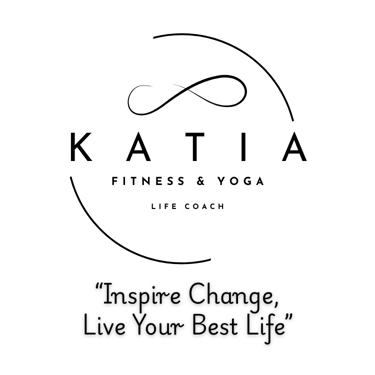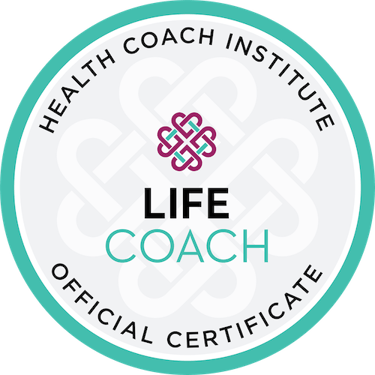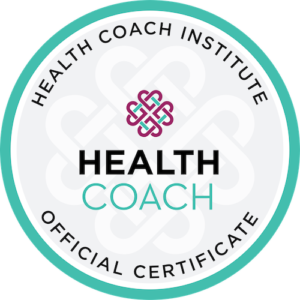The 3AM Cortisol Spike: Why You Wake Up Anxious & How to Fix It Naturally
Stop waking up anxious at 3AM! This natural 3-phase protocol fixes your cortisol awakening response without medication. Former elite athletes share their proven method for better sleep over 40. Includes evening routine, 3AM response technique, and daytime regulation tips. Save for better sleep tonight! #NaturalSleep #SleepOver40 #AnxietyRelief #HolisticHealth
7/10/202510 min read


The 3AM Cortisol Spike: Why You Wake Up Anxious & How to Fix It Naturally
Are you tired of that dreaded 3AM wake-up call where your heart races and your mind won't stop spinning? You're not alone - and it's not your fault.
If you're one of the 68% of people over 40 who experience middle-of-the-night anxiety, you've probably been told it's just "part of getting older" or that you need sleeping pills. But what if we told you there's a completely natural solution that addresses the root cause?
As former international elite circus performers now in our 50s, we've experienced firsthand how aging affects sleep patterns and stress responses. After years of testing natural methods and working with our wellness community, we've discovered that 3AM anxiety isn't actually insomnia - it's something called the cortisol awakening response gone wrong.
What Is the Cortisol Awakening Response?
Your body runs on a sophisticated internal clock system that regulates hormone production throughout the day. Cortisol, often called the "stress hormone," follows a specific pattern:
- Lowest levels: Midnight to 2AM (deep sleep time)
- Gradual rise: 3AM to 6AM (preparation for waking)
- Peak levels: 7AM to 9AM (natural wake-up energy)
- Steady decline: Throughout the day until evening
When this system works properly, you sleep deeply through the night and wake up naturally feeling refreshed. But when it's disrupted - which happens to most of us over 40 - you get a massive cortisol dump at 3AM instead of 7AM.
Why This Happens More After 40
Several age-related factors contribute to disrupted cortisol rhythms:
1. Declining Melatonin Production
Melatonin doesn't just help you fall asleep - it also regulates cortisol. As melatonin production decreases with age, cortisol can spike at inappropriate times.
2. Hormonal Changes
Especially in women approaching menopause, fluctuating estrogen and progesterone levels directly affect cortisol patterns. Even men experience hormonal shifts that can disrupt sleep.
3. Accumulated Life Stress
Decades of stress create a hypervigilant nervous system that's always ready to sound the alarm, even when you're trying to sleep.
4. Lifestyle Factors
Poor sleep hygiene, excessive screen time, irregular eating patterns, and lack of natural light exposure all contribute to 😴 circadian rhythm disruption.
The Cascade Effect: What Happens During a 3AM Cortisol Spike
When cortisol floods your system at 3AM, it doesn't just wake you up - it activates your entire stress response:
- Heart rate increases
- Blood pressure rises
- Blood sugar spikes
- Mind starts racing
- Body temperature fluctuates
- Digestive system activates
This is why you might find yourself lying there thinking about everything from work deadlines to whether you remembered to lock the front door. Your brain is literally in "survival mode" when it should be in "restoration mode."
Our Natural 3-Phase Solution Protocol
After testing dozens of approaches and seeing what works in real life, we've developed a comprehensive protocol that addresses the root cause, not just the symptoms.
Phase 1: Evening Cortisol Reset
The key is preparing your nervous system for proper cortisol cycling before you even get into bed.
The "Circus Wind-Down" Routine (2 hours before sleep):
1. Light Management
Dim all lights in your home after sunset. Bright light suppresses melatonin production and keeps cortisol elevated. We use warm, 💡amber lighting after 8PM.
2. 4-7-8 Breathing Technique
- Inhale through your nose for 4 counts
- Hold your breath for 7 counts
- Exhale through your mouth for 8 counts
- Repeat 4-8 times
This activates your parasympathetic nervous system and signals your adrenals to start reducing cortisol production.
3. Worry Dump Journaling
Write down everything on your mind for tomorrow. This tells your brain that you've got things handled, so it doesn't need to wake you up with reminders.
📔 Worry for Nothing: Guided Anxiety Journal
Phase 2: The 3AM Response Strategy
If you do wake up, resist the urge to check your phone or turn on lights. Instead, use our "CALM" technique:
- C - Control your breathing with the 4-7-8 pattern
- A - Acknowledge the cortisol spike without fighting it
- L - Lie still and do progressive muscle relaxation
- M - Mindfully redirect thoughts to something neutral
The goal isn't to force sleep - it's to prevent the cortisol spike from escalating into full panic mode.
Phase 3: Daytime Cortisol Regulation
What you do during the day directly impacts your nighttime cortisol patterns.
Morning Protocol:
- Get sunlight exposure within 30 minutes of waking (even on cloudy days)
- Take a 15-20 minute walk outside
- Avoid caffeine for the first 90 minutes after waking
Exercise Timing:
- High-intensity workouts before 6PM
- Gentle yoga or stretching in the evening
- Avoid vigorous exercise within 3 hours of bedtime
Evening Nutrition:
- Stop eating 3 hours before bed
- Avoid alcohol (it disrupts cortisol regulation)
- Include magnesium-rich foods like leafy greens and nuts
The Nutrition and Supplement Connection
Certain nutrients can either support or sabotage healthy cortisol rhythms:
Essential Nutrients for Cortisol Regulation:
Magnesium Glycinate: 400mg about an hour before bed. This form is highly absorbable and promotes relaxation without digestive upset.
Ashwagandha: An adaptogenic herb that helps normalize cortisol patterns. Studies show 300mg twice daily can reduce morning cortisol spikes by up to 30%.
L-theanine: Found in green tea, promotes relaxation without drowsiness. 200mg about an hour before bed has shown remarkable results.
Phosphatidylserine: A natural compound that can help blunt excessive cortisol release. 100mg before bed is the clinically studied dose.
Foods That Support Healthy Cortisol:
- Tryptophan-rich foods: Turkey, eggs, pumpkin seeds
- Complex carbohydrates: Sweet potatoes, oats, quinoa
- Omega-3 fatty acids: Wild-caught salmon, walnuts, chia seeds
- Antioxidant-rich foods: Berries, dark leafy greens, green tea
Foods That Disrupt Cortisol:
- Caffeine after 2PM
- High-sugar foods and drinks
- Processed foods with artificial additives
- Large meals close to bedtime
- Excessive alcohol
Real Results from Real People
Sarah's Story:
Sarah, a 52-year-old teacher in our community, was waking up anxious every night for months. She felt exhausted during the day and was considering sleep medication. After implementing our protocol for just two weeks, she reported sleeping through the night 5 out of 7 nights.
"I finally feel like myself again," she told us. "I had no idea my evening routine was sabotaging my sleep. The worry dump journaling alone made a huge difference."
Mark's Transformation:
Mark, 48, was a high-stress executive who thought his 3AM wake-ups were just part of his demanding career. Within a month of following our daytime cortisol regulation strategies, he was sleeping 7-8 hours consistently.
"The morning sunlight exposure was a game-changer," he shared. "I never realized how much my indoor lifestyle was affecting my sleep."
When to Seek Additional Help
If you've tried these strategies consistently for 4-6 weeks without improvement, consider having your cortisol levels tested. A 4-point saliva cortisol test can reveal exactly when your levels are spiking and help you fine-tune your approach.
Sometimes underlying conditions can disrupt cortisol patterns:
- Sleep apnea
- Thyroid dysfunction
- Chronic inflammation
- Blood sugar imbalances
- Nutrient deficiencies
Don't hesitate to work with a healthcare provider who understands the connection between hormones and sleep.
Your Action Plan Starting Tonight
Here's your step-by-step guide to implementing these strategies:
Week 1: Foundation Building
- Start the evening wind-down routine
- Begin worry dump journaling
- Get morning sunlight exposure
- Add magnesium glycinate to your routine
Week 2: Refinement
- Practice the CALM technique if you wake up
- Fine-tune your exercise timing
- Eliminate caffeine after 2PM
- Add ashwagandha if needed
Week 3-4: Optimization
- Consider additional supplements based on your response
- Track your sleep patterns in a journal
- Adjust timing of interventions as needed
- Evaluate overall stress management
The Science Behind Natural Sleep Restoration
Research consistently shows that natural approaches to sleep improvement are not only effective but often superior to pharmaceutical interventions for long-term results:
- A 2019 study in the Journal of Clinical Medicine found that magnesium supplementation improved sleep quality in 87% of participants within 8 weeks
- Research published in the Indian Journal of Medical Research showed ashwagandha reduced cortisol levels by 27.9% in chronically stressed adults
- A Stanford University study demonstrated that morning light exposure advanced sleep onset by an average of 1.4 hours
- The American Journal of Lifestyle Medicine published findings showing that consistent sleep hygiene practices improved sleep quality scores by 42% within one month
Common Mistakes to Avoid
As we've worked with hundreds of people struggling with 3AM wake-ups, we've noticed several common pitfalls that can sabotage your progress:
1. Inconsistent Implementation
Many people try these strategies sporadically and wonder why they don't work. Your circadian rhythm needs consistency to reset properly. Stick to your evening routine even on weekends.
2. All-or-Nothing Mentality
You don't need to implement every strategy at once. Start with 2-3 techniques and build from there. Overwhelming yourself can actually increase stress and cortisol production.
3. Checking Your Phone at 3AM
This is the biggest mistake we see. The blue light exposure immediately signals your brain that it's time to be awake, making it nearly impossible to fall back asleep.
4. Fighting the Wake-Up
Resistance creates more stress. Accept that you're awake, use the CALM technique, and trust that your body will naturally return to sleep when cortisol levels drop.
5. Ignoring Daytime Habits
Your nighttime sleep is directly connected to your daytime activities. You can't out-supplement a lifestyle that's constantly triggering cortisol spikes.
Advanced Strategies for Stubborn Cases
If you've mastered the basics but still struggle occasionally, these advanced techniques can provide additional support:
Temperature Regulation
Your core body temperature naturally drops as you prepare for sleep. You can enhance this process by:
- Taking a warm bath 1-2 hours before bed (the cooling effect afterward promotes sleepiness)
- Keeping your bedroom between 65-68°F (18-20°C)
- Using cooling pillows or mattress toppers
Sound Therapy
Consistent, low-level sounds can mask disruptive noises and promote deeper sleep:
- White noise machines
- Nature sounds (rain, ocean waves)
- Binaural beats designed for sleep
- Avoid music with lyrics or varying volumes
Aromatherapy
Certain scents have been scientifically proven to reduce cortisol and promote relaxation:
- Lavender essential oil (2-3 drops on your pillow)
- Chamomile tea before bed
- Bergamot oil in a diffuser
🌿 BZseed Aromatherapy Essential Oil Diffuser
The Long-Term Benefits of Natural Sleep Restoration
When you successfully regulate your cortisol awakening response naturally, the benefits extend far beyond just sleeping through the night:
Physical Health Improvements:
- Stronger immune system
- Better blood sugar regulation
- Reduced inflammation
- Improved cardiovascular health
- Enhanced muscle recovery and growth hormone production
Mental and Emotional Benefits:
- Improved mood stability
- Better stress resilience
- Enhanced cognitive function and memory
- Increased emotional regulation
- Greater sense of well-being
Performance and Productivity:
- Sharper focus and concentration
- Better decision-making abilities
- Increased creativity and problem-solving skills
- More consistent energy throughout the day
- Improved physical performance
Creating Your Personal Sleep Sanctuary
Your bedroom environment plays a crucial role in supporting healthy cortisol rhythms. Here's how to optimize your space:
Lighting:
- Blackout curtains or eye masks
- Remove or cover LED lights from electronics
- Use red or amber night lights if needed
- Consider a sunrise alarm clock for natural waking
Air Quality:
- Maintain good ventilation
- Consider an air purifier if you have allergies
- Keep humidity between 30-50%
- Add plants that improve air quality (snake plant, peace lily)
Comfort and Support:
- Invest in a quality mattress and pillows
- Use breathable, natural fiber bedding
- Keep the room clutter-free and calming
- Consider separate blankets if you share a bed
Tracking Your Progress
Monitoring your improvements helps maintain motivation and identify what works best for you:
Sleep Journal Elements:
- Bedtime and wake time
- Number of middle-of-the-night wake-ups
- How you felt upon waking (1-10 scale)
- Evening routine compliance
- Stress levels throughout the day
- Supplement timing and effects
Weekly Assessment Questions:
- How many nights did you sleep through without waking?
- What was your average energy level during the day?
- Which strategies felt most helpful?
- What challenges did you encounter?
- What adjustments might improve your results?
When Natural Methods Need Professional Support
While our natural protocol works for the majority of people, some situations require additional professional guidance:
Consider Consulting a Healthcare Provider If:
- You've followed the protocol consistently for 8+ weeks without improvement
- You experience severe anxiety or panic attacks upon waking
- You have other symptoms like chest pain, severe headaches, or breathing difficulties
- You're taking medications that might affect sleep or cortisol
- You suspect an underlying medical condition
Types of Professionals Who Can Help:
- Functional medicine doctors (understand root cause approaches)
- Sleep specialists (can rule out sleep disorders)
- Naturopathic physicians (expertise in natural hormone balancing)
- Certified sleep coaches (behavioral and lifestyle interventions)
The Ripple Effect: How Better Sleep Transforms Your Life
When Sarah first came to us, she was exhausted, irritable, and felt like she was failing at everything. Her 3AM wake-ups were affecting her teaching, her relationships, and her overall joy in life.
Six months after implementing our natural protocol, she sent us this message:
"I can't believe how much my life has changed. Not only am I sleeping through the night, but I have energy to exercise again, I'm more patient with my students, and my husband says I'm like a different person. I never realized how much that middle-of-the-night anxiety was stealing from my life."
This is the ripple effect of addressing the root cause rather than just masking symptoms. When you restore your natural cortisol rhythm, every aspect of your health and life improves.
Your Journey Starts Tonight
Remember, that 3AM anxiety wake-up isn't a character flaw or something you just have to live with. It's a disrupted hormonal pattern that responds beautifully to natural interventions when you address the root cause instead of just treating symptoms.
Your body wants to sleep well - we just need to give it the right signals and support. After decades of pushing our bodies to the limit as performers, we've learned that working with your natural rhythms, not against them, is the key to lasting health and vitality.
Tonight's Action Steps:
1. Start your evening wind-down routine 2 hours before bed
2. Do a worry dump in your journal
3. Practice the 4-7-8 breathing technique
4. If you wake at 3AM, use the CALM method instead of reaching for your phone
This Week's Goals:
- Get morning sunlight exposure daily
- Add magnesium glycinate to your routine
- Eliminate caffeine after 2PM
- Track your sleep patterns
This Month's Vision:
- Sleeping through the night 5+ nights per week
- Waking up feeling refreshed and energized
- Having stable energy throughout the day
- Feeling proud of taking control of your health naturally
Final Thoughts: You've Got This
We know how frustrating and exhausting chronic sleep disruption can be. We've been there ourselves, and we've walked alongside hundreds of people who have successfully transformed their sleep using these natural methods.
The key is consistency, patience, and trust in your body's innate wisdom. You don't need quick-fix pills or extreme measures - you need understanding, the right natural tools, and the commitment to stick with what works.
Sweet dreams start with smart choices, and you've already made the first one by seeking natural solutions. Your future well-rested self is thanking you already.
Ready to take the next step in your natural wellness journey? Subscribe to our YOUTUBE channel for more science-backed, practical health solutions that actually work. And don't forget to check the comments section for our recommended supplements and sleep tools - we only share what we personally use and trust.
About the Authors: As former international elite circus performers now in our 50s, we understand what it means to push your body to the limit and then learn to thrive in a new chapter of life. We're passionate about sharing practical, natural solutions that help you take control of your health journey and enjoy every moment. No quick fixes, no extreme promises - just real science and time-tested methods that work.
Disclaimer: This information is for educational purposes only and is not intended to replace professional medical advice. Always consult with your healthcare provider before making significant changes to your health routine, especially if you have underlying medical conditions or take medications.
Disclaimer: This post contains affiliate links. We only recommend products we personally use and believe in. Your purchase helps support our mission to share natural health solutions.







